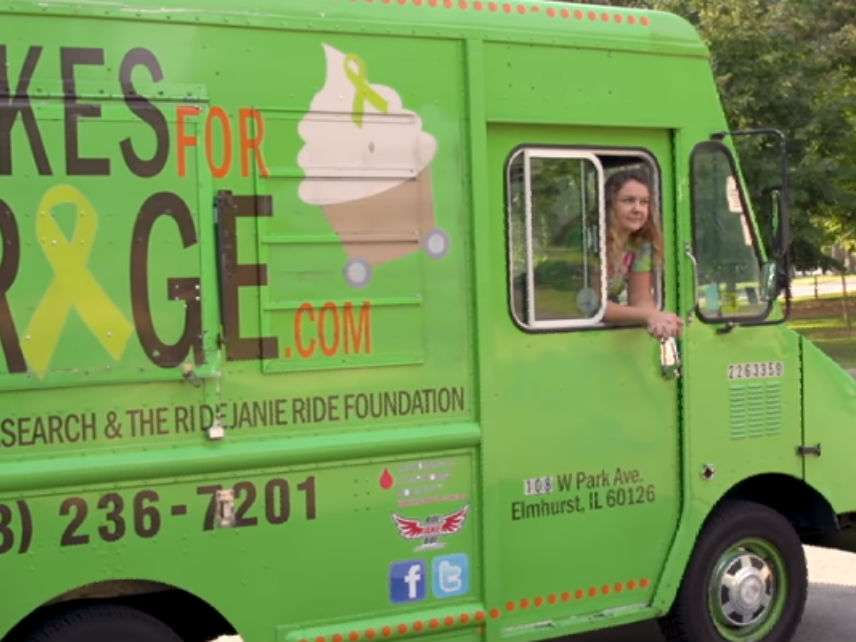Liberate Food Trucks
- OurStudio

- Dec 12, 2017
- 3 min read

Reason
Laura Pekarik bakes cupcakes and sells them from a food truck. Her truck provided a great opportunity, letting her open a business without having to spend big to hire a staff and rent space in a building.
"Instead of renting a whole brick and mortar and managing a team of people, it was just me and one baker," she explains.
But increased regulations, such as new rules that forbid trucks to park near established restaurants, make life hard for people like Pekarik.
"It became ever more difficult to find parking locations when we went to the city (Chicago) to try to sell our cupcakes," she says. "I would have customers calling me trying to find us and I was like, I'm trying to find a parking spot! I'll post as soon as I land."
Jumping through hurdles like that forced her to waste gas, money and time, so she cut back her business and rarely, if ever, drives to Chicago. "Every moment that we're driving around and not parked in a location with our window open meant that we couldn't sell."
Food truck operator Joey Vanoni is tortured by regulations, too. He sells pizza in Baltimore.
That rescued him from unemployment. After serving in Afghanistan, he couldn't find a job. But then he learned about food trucks. "It really started taking off right around the recession…2008," he told me for my YouTube video this week (watch below).
"A lot of restaurant entrepreneurs—capital they had was not enough to go out and start a restaurant on their own. Banks weren't willing to give loans. So the food truck phenomenon really took off."
But now Baltimore's anti-food truck rules make that harder. Vanoni is not allowed to park within 300 feet of any established restaurant selling the same product. Since there are pizza restaurants all over town, that leaves him few places to park.
Why do bureaucrats create hurdles like that?
People who trust government assume it's to reduce congestion, or something like that.
But the real purpose is to protect already-established restaurants. They don't like competition. No business does.
They shouldn't have to face such competition, argues Chicago Alderman Tom Tunney (D). He sets food truck parking rules in his district.
"A brick and mortar is a much more stable enterprise," he says. "I'm going to be prejudicial towards those kinds of businesses."
Tunney has another reason "to be prejudicial." He owns brick and mortar restaurants in the area. At least he discloses that.
Regulations that limit food truck operations are a protectionist scam, says Dick Carpenter of the libertarian law firm Institute for Justice. Carpenter says such rules are "a bottleneck" that established businesses use to kill competition.
The rules, like demands for licensing of florists, moving companies, hair dressers, tour guides, etc., are passed by politicians. But often these politicians are in cahoots with owners of established businesses.
"But in the case of food trucks, is the competition fair?" I asked Carpenter. "The guy who opened the restaurant and had to pay real estate taxes—and pay for his building. Isn't he getting ripped off by these new guys?"
"That assumes the food truck operator doesn't pay expenses of the same type," answered Carpenter, but they do. "Food truck operators pay taxes, they pay rents, and through their rents they pay property taxes."
With the help of the Institute for Justice, Pekarik and Vanoni are suing Chicago and Baltimore, arguing that it's unconstitutional for regulators to favor one industry over another.
It's been a long battle, says Carpenter. "This case with Laura: five years and going." Food truck owners face very organized opposition, he adds. "The restaurant association has so much influence over those who are elected officials."
All these battles against "bottleneckers" are important, argues the Institute, because Americans have a right to economic liberty—the right to earn a living in an occupation of their choice, free from excessive government interference.
Getting rid of that interference will give us all more choices, even if it's just one cupcake and pizza slice at a time.
COPYRIGHT 2017 BY JFS PRODUCTIONS INC.




Comments